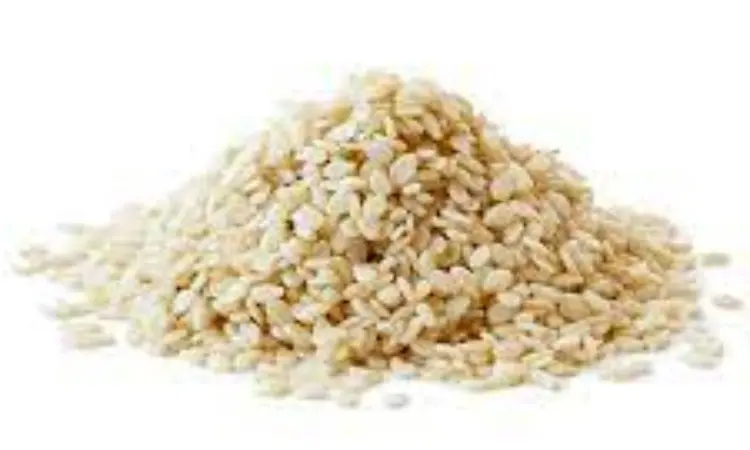- Home
- Medical news & Guidelines
- Anesthesiology
- Cardiology and CTVS
- Critical Care
- Dentistry
- Dermatology
- Diabetes and Endocrinology
- ENT
- Gastroenterology
- Medicine
- Nephrology
- Neurology
- Obstretics-Gynaecology
- Oncology
- Ophthalmology
- Orthopaedics
- Pediatrics-Neonatology
- Psychiatry
- Pulmonology
- Radiology
- Surgery
- Urology
- Laboratory Medicine
- Diet
- Nursing
- Paramedical
- Physiotherapy
- Health news
- Fact Check
- Bone Health Fact Check
- Brain Health Fact Check
- Cancer Related Fact Check
- Child Care Fact Check
- Dental and oral health fact check
- Diabetes and metabolic health fact check
- Diet and Nutrition Fact Check
- Eye and ENT Care Fact Check
- Fitness fact check
- Gut health fact check
- Heart health fact check
- Kidney health fact check
- Medical education fact check
- Men's health fact check
- Respiratory fact check
- Skin and hair care fact check
- Vaccine and Immunization fact check
- Women's health fact check
- AYUSH
- State News
- Andaman and Nicobar Islands
- Andhra Pradesh
- Arunachal Pradesh
- Assam
- Bihar
- Chandigarh
- Chattisgarh
- Dadra and Nagar Haveli
- Daman and Diu
- Delhi
- Goa
- Gujarat
- Haryana
- Himachal Pradesh
- Jammu & Kashmir
- Jharkhand
- Karnataka
- Kerala
- Ladakh
- Lakshadweep
- Madhya Pradesh
- Maharashtra
- Manipur
- Meghalaya
- Mizoram
- Nagaland
- Odisha
- Puducherry
- Punjab
- Rajasthan
- Sikkim
- Tamil Nadu
- Telangana
- Tripura
- Uttar Pradesh
- Uttrakhand
- West Bengal
- Medical Education
- Industry
Sesame seeds intake helps desensitize allergic response finds study

To desensitize sesame-allergic pediatric patients, oral desensitization with crushed sesame seeds and tahini can be a safe and successful method, says an article published in Journal of Allergy and Clinical Immunology.
Oral desensitization is a new food allergy therapy approach. In the United States, statistics on sesame oral desensitization effects are few. As a result, Ami Shah and colleagues undertook this study to evaluate the efficiency of crushed sesame seeds in oral desensitization. For this purpose, in a pediatric food allergy referral center, a retrospective chart study of young children receiving sesame oral desensitization was done.
The key findings of this study were:
1. Oral desensitization to sesame was performed on 86 individuals (median age 5 years) with an allergist-diagnosed sesame allergy.
2. Before patients attained a maintenance dosage, typically 1 teaspoon of tahini, oral desensitization entailed an initial low dose oral food challenge (OFC) to crushed sesame seeds or tahini (1000mg sesame protein). 51 (59.3%) were able to maintain. 26, or 30.2%, of the patients were still in the build-up stage.
3. Due to reactions (n=3), uncontrolled asthma (n=1), trouble with daily dose (n=1), or unknown (n=4), nine patients (10.5%) stopped desensitization.
4. During daily treatment, 25 patients (29.1%) had allergic responses, with just 1 reaction needing epinephrine.
5. The full dosage OFC to 1 tablespoon of tahini (3000mg sesame protein) was performed by ten patients who had attained maintenance dosing; all had negative OFCs (100%).
6. After stopping daily sesame dose for 4-6 weeks, all ten patients had a prolonged unresponsiveness OFC to 1 tablespoon of tahini. 10 out of 10 (100%) prolonged unresponsiveness OFCs returned negative results.
In conclusion, this investigation indicated that oral sesame desensitization for allergic young patients was both secure and efficient.
Reference:
Shah, A., Cox, A., Kattan, J., Tsuang, A., Sicherer, S., Groetch, M., Schaible, A., & Oriel, R. (2023). Sesame Oral Desensitization Outcomes in a Pediatric Cohort. In Journal of Allergy and Clinical Immunology (Vol. 151, Issue 2, p. AB121). Elsevier BV. https://doi.org/10.1016/j.jaci.2022.12.383
Neuroscience Masters graduate
Jacinthlyn Sylvia, a Neuroscience Master's graduate from Chennai has worked extensively in deciphering the neurobiology of cognition and motor control in aging. She also has spread-out exposure to Neurosurgery from her Bachelor’s. She is currently involved in active Neuro-Oncology research. She is an upcoming neuroscientist with a fiery passion for writing. Her news cover at Medical Dialogues feature recent discoveries and updates from the healthcare and biomedical research fields. She can be reached at editorial@medicaldialogues.in
Dr Kamal Kant Kohli-MBBS, DTCD- a chest specialist with more than 30 years of practice and a flair for writing clinical articles, Dr Kamal Kant Kohli joined Medical Dialogues as a Chief Editor of Medical News. Besides writing articles, as an editor, he proofreads and verifies all the medical content published on Medical Dialogues including those coming from journals, studies,medical conferences,guidelines etc. Email: drkohli@medicaldialogues.in. Contact no. 011-43720751


